
Although the vast majority of these are cellphone captures of someone’s meal, holiday destination or family occasion, a quick glimpse at various social media platforms will reveal that much of the focus is on wildlife and bird photography.
Before 2000, most wildlife photographers were usually ardent naturalists who went to great lengths and invested heavily in both time and equipment to communicate wildlife behavior effectively to their audiences. They were role models whose ethics and standards ought still to be aspired to by today’s wildlife photographers. But as that age of education makes way for one of instant gratification, the aforesaid doyens of conservation photography are becoming less common. Photographs celebrating rare species and seldom-seen behavior now take second place to those in which technical merit is paramount. Ethics often appear to evaporate when everything hinges on whether an image could be considered worthy of being shortlisted in a photography competition or reach some milestone number of ‘likes’ on Facebook.
I am intrigued by wildlife, which is why I chose to pursue professional nature guiding as a career. Sharing this wonder with like-minded people and educating others is so richly rewarding that it doesn’t warrant any complaints from me, yet the frustration of being at a rare sighting only to hear comments like ‘bad light’, ‘facing the wrong way’, ‘too far’ or even ‘boring’ can drive even the most tactful guide down a path where we should perhaps not venture.
Fortunately, there are still many people around who, I hope, would not object to spending time with any of the birds shared in this portfolio and for whom the beauty of the creature outweighs any technical shortcomings!
Diese Geschichte stammt aus der September/October 2019-Ausgabe von African Birdlife.
Starten Sie Ihre 7-tägige kostenlose Testversion von Magzter GOLD, um auf Tausende kuratierte Premium-Storys sowie über 8.000 Zeitschriften und Zeitungen zuzugreifen.
Bereits Abonnent ? Anmelden
Diese Geschichte stammt aus der September/October 2019-Ausgabe von African Birdlife.
Starten Sie Ihre 7-tägige kostenlose Testversion von Magzter GOLD, um auf Tausende kuratierte Premium-Storys sowie über 8.000 Zeitschriften und Zeitungen zuzugreifen.
Bereits Abonnent? Anmelden

EXPLORING NEW HORIZONS
Keith Barnes, co-author of the new Field Guide to Birds of Greater Southern Africa, chats about the long-neglected birding regions just north of the Kunene and Zambezi, getting back to watching birds and the vulture that changed his life.
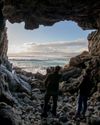
footloose IN FYNBOS
The Walker Bay Diversity Trail is a leisurely hike with a multitude of flowers, feathers and flavours along the way.
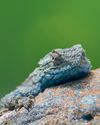
Living forwards
How photographing birds helps me face adversity
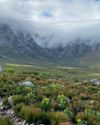
CAPE crusade
The Cape Bird Club/City of Cape Town Birding Big Year Challenge
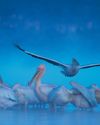
water & WINGS
WATER IS LIFE. As wildlife photographer Greg du Toit knows better than most.
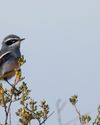
winter wanderer
as summer becomes a memory in the south, the skies are a little quieter as the migrants have returned to the warming north. But one bird endemic to the southern African region takes its own little winter journey.
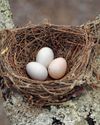
when perfect isn't enough
Egg signatures and forgeries in the cuckoo-drongo arms race

Southern SIGHTINGS
The late summer period naturally started quietening down after the midsummer excitement, but there were still some classy rarities on offer for birders all over the subregion. As always, none of the records included here have been adjudicated by any of the subregion's Rarities Committees.

flood impact on wetland birds
One of the features of a warming planet is increasingly erratic rainfall; years of drought followed by devastating floods. Fortunately, many waterbirds are pre-adapted to cope with such extremes, especially in southern Africa where they have evolved to exploit episodic rainfall events in semi-arid and arid regions. But how do waterbirds respond to floods in areas where rainfall - and access to water - is more predictable? Peter Ryan explores the consequences of recent floods on the birds of the Western Cape's Olifants River valley.
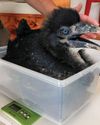
a star is born
It’s every producer’s dream to plan a wildlife television series and pick the right characters before filming.